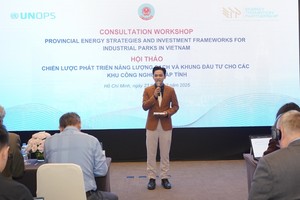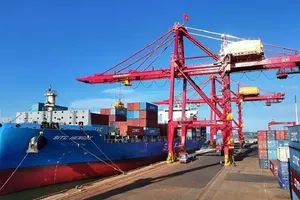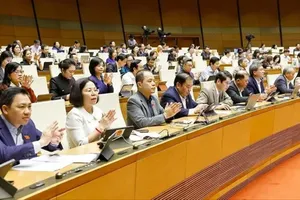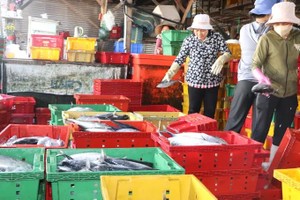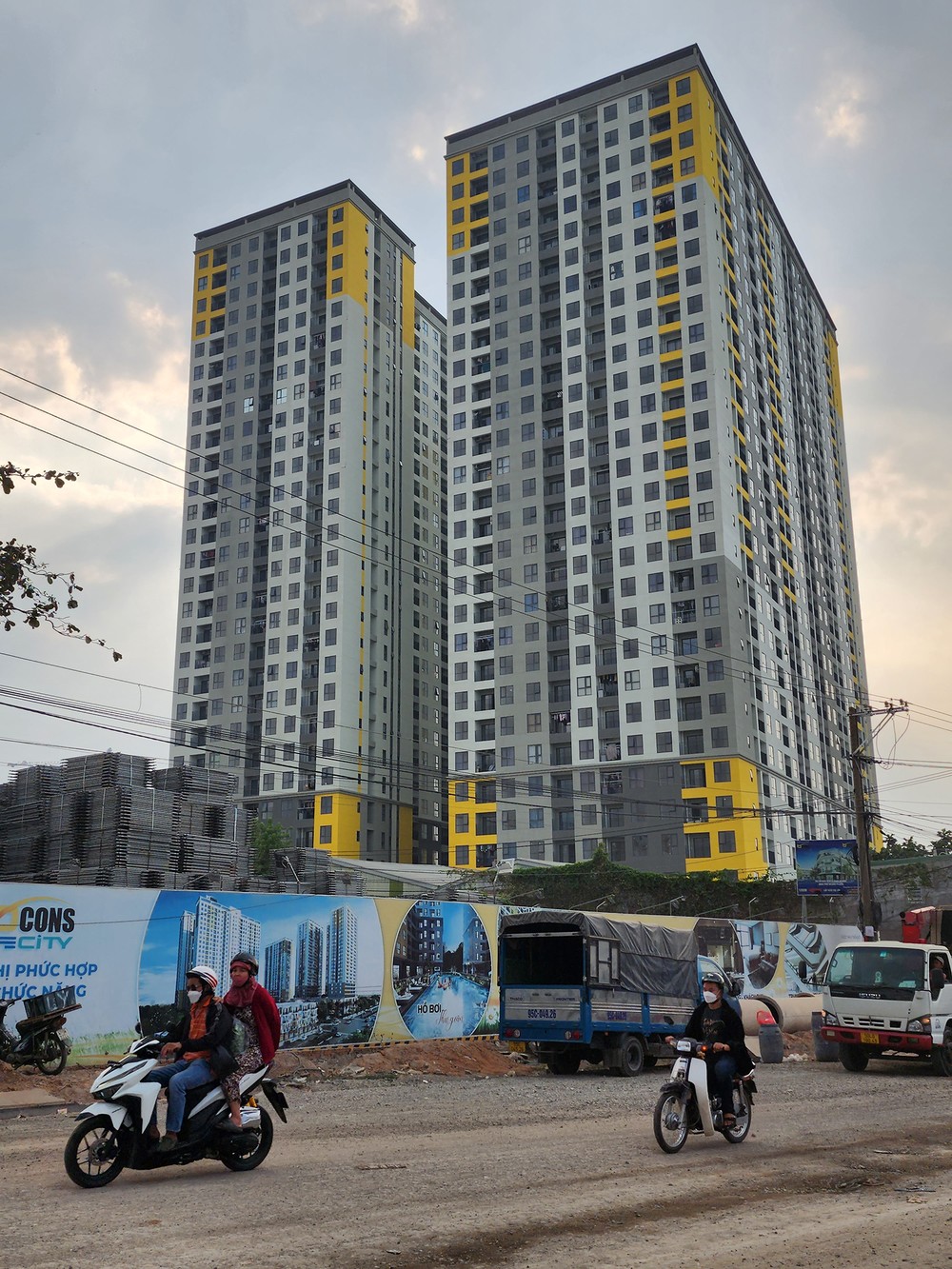
According to assessments by some experts, the current cash flow situation for real estate is the worst in the past five years.
In the first half of this year, the real estate market experienced challenging times and witnessed numerous breakups. Statistics from the General Statistics Office show that over the past six months, as many as 3,185 real estate businesses across the country announced temporary suspensions of operations, a 125 percent increase compared to the same period in 2023.
Dissolved businesses hit 605, accounting for 92.5 percent of the number during the same period last year. Most of these businesses are facing scenarios that no one desires, including bankruptcy, operational suspensions, salary cuts, and restructuring.
Meanwhile, a recent report on the business situation in the second quarter of 2024, published by the Ho Chi Minh City Business Association (HUBA), revealed that many small real estate businesses are struggling with a cash crunch due to a series of ongoing difficulties.
Notably, real estate businesses are dealing with a massive bond debt of up to VND350,876 billion (approximately US$15.4 billion), with an estimated value in 2024 being VND99,700 billion (around $4.4 billion).
The government and the State Bank of Vietnam have issued various support policies for businesses, some of these policies have not been highly effective. For example, Resolution No. 43/2022/QH14 regarding 2-percent annual interest rate support for certain industries and sectors allowed businesses to disburse approximately VND1,218 billion (equivalent to about 3.05 percent of the total amount of VND40,000 billion) by the end of 2023. Another case is the VND120,000 billion credit package for social housing development, which offers interest rates reduced by 1.5 percent to 2 percent compared to the market. However, after nearly a year of implementation, only slightly VND500 billion has been disbursed, which is less than 1 percent.
In reality, many real estate businesses have had to transfer ownership, and sell entire projects, or part of them, in order to generate cash flow—primarily to repay debts. For instance, DIC Corporation recently approved the transfer of commercial service areas within the Cap Saint Jacques Complex Phase 1 project. The recipient of this transfer is DIC Hospitality Company.
Similarly, VRC Real Estate and Investment Joint Stock Company, through its subsidiary ADEC Joint Stock Company, has approved the transfer of a part of the ADC Residential Area in Phu My Ward of Ho Chi Minh City’s District 7 with the aim to supplement the working capital needs of ADEC Joint Stock Company. Meanwhile, in June 2024, Nam Long Investment Joint Stock Company also completed the transaction to transfer 25 percent of its capital in the Paragon Dai Phuoc project, with an area of 45 hectares, to Japanese partner Nishi Nippon Railroad. This transaction has a value of VND662 billion.
According to representatives of real estate project investors in Ho Chi Minh City, in addition to the burden of costs, legal bottlenecks are a factor that drains businesses of cash flow. Businesses must have new products to sell on the market to have revenue and wait for the market’s recovery. But to have a product, they must wait for legal clearance, and during the waiting period, there is no money to operate.
Economist Dinh The Hien said that from the beginning of 2024 until now, the price of gold has increased sharply, and the USD exchange rate has increased by more than 5 percent, which limits the government's money supply; thereby, making cash flow difficult in the first and second quarters of this year. Real estate businesses with poor performance have found it difficult to access bank loans.
Another point that hinders investment cash flow, pointed out by expert Dinh The Hien, is the bonds that need to be handled in 2024 amounting to VND382,000 billion.
Along with that, cash liquidity is also low due to difficulties in real estate transactions. Individual investors are still hesitant to invest in real estate. Speculative investors are still hesitant and have no confidence in the recovery of real estate, so they dare not invest while long-term investors are still observing. This makes the real estate market in 2024 not as expected, said Dr. Dinh The Hien.
Meanwhile, finance and banking expert Nguyen Tri Hieu said that when the market has not yet recovered, real estate businesses have weak cash flow, a high debt ratio, and limited funds to repay debts, which may pose a risk to the ability to pay for previously issued bonds.
The increasing rate of bad debts has made many banks more cautious in disbursing loans making it more difficult for real estate businesses to access credit. To encourage banks to lend without fear of risk, a credit guarantee fund (which guarantees the amount that banks have lent to businesses if businesses become unable to repay) is the most suitable solution that the government should consider.
HUBA Permanent Vice Chairman Nguyen Phuoc Hung said that the recovery of the real estate industry is necessary to beautify Ho Chi Minh City, the largest city in the South, and increase budget revenue. From there, it will pave the way for restoring the development of related industries, such as construction, manufacturing, and building materials businesses. The business community is very pleased that the National Assembly has passed three amended laws related to the real estate market, including the Land Law, the Housing Law, and the Real Estate Business Law.
The implementation of these new laws is expected to remove regulatory and legal bottlenecks for businesses and encourage more efficient use of land resources. At the same time, the valuation of land based on market principles will eliminate the dual pricing situation, providing a reasonable basis for carrying out compensation, site clearance, financial obligations to the State, determining real estate selling prices, calculating costs, and project investment efficiency.




